How Do I Continue a Dream the Next Night
We spend nearly a third of our lives asleep. A good portion of this time is spent dreaming, whether you remember it or not.
Training your mind to remember your dreams can regain a large portion of our existence and offers us unique insights into the unconscious parts of the psyche.
Getting started with dream journaling is free. All you need is a pen and paper or a simple note-taking app to get started. The more you make it a habit, the easier it becomes to remember your dreams each morning.
With practice, dream journaling can even help you to lucid dream.
Here, we'll explore how to record your dreams, why it's so valuable and offer some tips and tricks to help you tap into the power of dreaming.
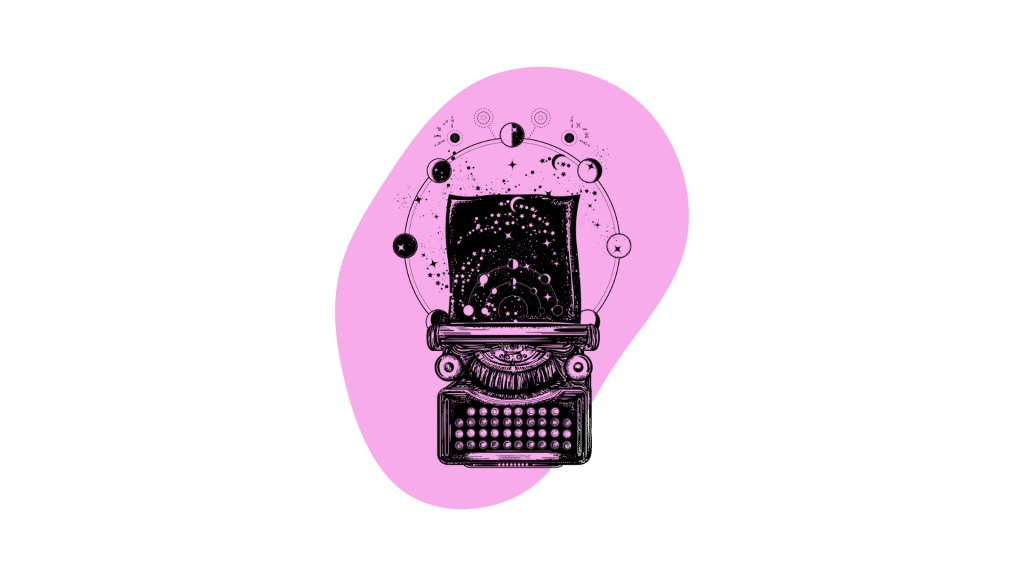
What is Dream Journalling?
Dream journaling is the practice of recording one's dreams first thing in the morning to establish them as memories in the conscious mind. It's a tool used to improve dream-recall (the ability to remember our dreams) and identify recurring patterns that may offer insights into how we think, act, and feel.
Dream journaling is also used by people who practice lucid dreaming. By learning to recognize patterns in dreams, we become better at recognizing when we're in a dream. This means we're more likely to "wake up" and become conscious within the dream (lucid dreaming).
How to Start a Dream Journal
Getting started with dream journaling is simple. Keep a pen and paper next to your bed, and as soon as you wake up the next day, record anything you can remember.
There are no rules for dream journaling, and it doesn't matter what you write on the paper, as long as you write something.
Even a few bullet notes about the vague details you can remember or a few notes about how you felt is good enough. Don't pressure yourself to write a novel each morning. The whole purpose of this practice is to train your mind to remember dreams more clearly by bringing the visions up from the unconscious realm they came from and depositing them into your conscious memory.

What Should I Write in My Dream Journal?
What you write in your dream journal doesn't matter that much — the most important thing is that you're consistent and write in your journal every morning. As you get used to recording your dreams each morning, it will become more natural, and you'll begin to remember more details as time goes on.
Some people prefer to follow prompts about their dreams; others just write freeform.
I use a combination of both and often change the style from one entry to another.
I have two prompts I answer each morning — where did the dream take place, and who was there — the rest is just a chaotic jumble of thoughts spewed out onto the paper. You can also choose to draw or doodle, make bullet lists, or any other means of getting your experiences onto the paper.
There's no right or wrong way to do it.
The whole point of this practice is to drag the thoughts residing in your unconscious up into your conscious through writing. Once it's there, it doesn't matter what you put on the page as long as the ideas are brought to the surface.
You can always go back later and "organize" or catalog your thoughts if you feel inclined to do so.
Here are some things you may want to include as you're recording your dreams from the night before:
- Where did the dream take place?
- Who was in the dream with you?
- How did you feel during the dream? How do you feel now that you've woken up?
- How did the dream end?
- Were there any recurring themes from previous dreams?
What If I Don't Remember Any Dreams?
Even if you don't remember any dreams, it's important to write something in your journal.
The idea is to be as consistent as possible, so even if you have nothing to report, just record a new log and mention that you didn't have any dreams today.
Feel free to write anything else down, regardless of how relevant it may seem. How was your sleep? Do you feel refreshed? What time is it currently?
The progress here comes from writing something down; it doesn't matter so much what you're actually writing quite yet.
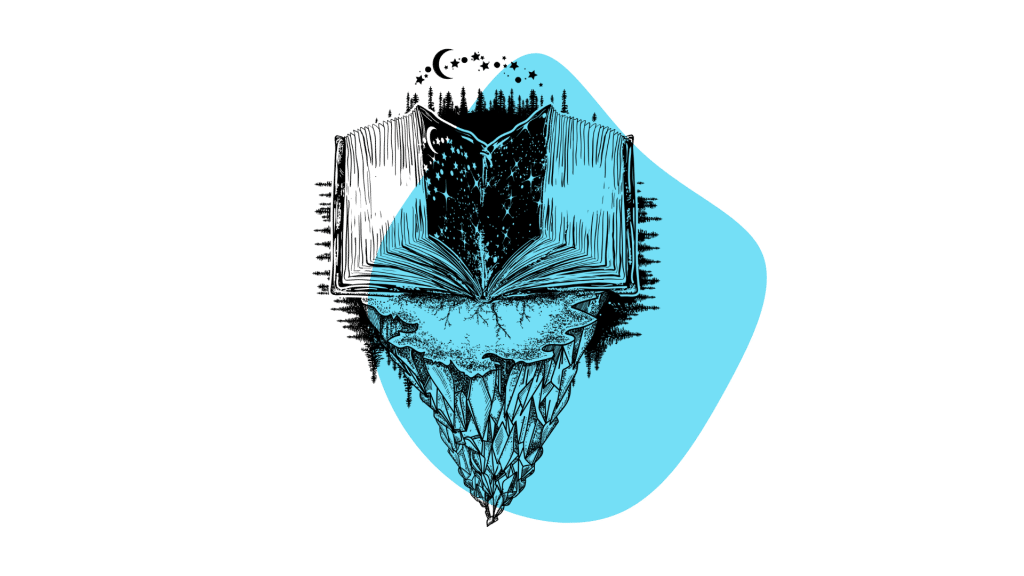
Tips For Getting The Most From Your Dream Journalling Practice
While I acknowledge there are no rules for dream journaling, there are some tips that can make the process easier and more efficient.
1. Be Consistent
I've said this before, but I'll say it again. You'll progress much more quickly if you make dream journaling a habit. This takes conscious effort in the beginning, but over time you'll become accustomed to waking up and immediately starting to process your dreams so you can record them in your journal. This alone is going to significantly improve your ability to recall your dreams after just a couple of weeks.
2. Record Your Dreams Immediately Upon Waking
In order to get the most out of dream journaling, you should aim to write in your journal as quickly as possible upon waking. The longer you wait, the less you're going to be able to remember.
This is why it's useful to keep your journal next to you as you sleep. Any interactions you have before getting to your journal are going to cut out pieces of the dream from memory.
3. Use A Voice Recorder If Writing Isn't Your Vibe
Dream journaling can involve using a voice recorder as well. You don't need to physically write them down for this process to work (although the consensus is that writing them down is more effective).
Some people use a mix of both. They'll wake up and use a voice recorder or their phone to record the message and then convert this into writing later.
4. Practice Lucid Dreaming
You don't need to practice lucid dreaming to benefit from dream journaling, but it can certainly help you get the most from them.
Lucid dreams are essentially any dream in which you're aware that you're dreaming. These types of dreams are easier to remember than non-lucid dreams and allow you to pay attention to more subtle details during the dream itself.
Dream journaling directly improves your ability to lucid dream. The more you pay attention to your dreams and point out recurring images or themes, the more likely you are to become conscious mid-dream.
There are many different techniques to learn how to lucid dream, but most follow the same general format:
- Practice "reality checks" periodically during the day (such as trying to pike your finger through physical surfaces or trying to see through objects). The more often you do these, the more likely you are to try them in a dream.
- Before you go to sleep, schedule an alarm to go off 2 hours before your normal waking time.
- After waking up, do something that stimulates your mind while allowing your body to fall back asleep (gaze at your hands, tap your fingers, or repeat a mantra).
- If you're lucky, you'll enter a dream once again and realize through reality checks that you're dreaming.
5. Track Your Sleep Cycles
Understanding how we sleep and when we're most likely experiencing a particular type of sleep called REM sleep can dramatically improve our ability to facilitate memorable dreams.
REM stands for rapid eye movement. During this stage of sleep, the mind becomes active, and the eyes will jolt back and forth behind our closed eyes while the rest of the body remains frozen in sleep.
REM sleep happens in cycles starting about 90 minutes after you first fall asleep. The first REM cycle is about 10 minutes long, followed by a period of deep, dreamless sleep. After a while, we enter another slightly longer REM cycle, followed by more deep sleep.
By the time we wake up, we've had about 5–6 REM cycles, with the longest cycle lasting roughly an hour total. It's this final REM cycle, which happens about 1–2 hours before you normally wake up, that most of our memorable dreams occur.
By tracking your sleep over several weeks using sleep apps, you can pinpoint when you're most likely to be in your final REM sleep cycle.
There are a few things you can do with this information.
Some people set an alarm clock to go off right before they enter their final REM cycle. By waking up and then falling back asleep at this exact moment, you're more likely to realize you're in a dream partway through — thus leading to a lucid dream.
Others set an alarm to go off right at the tail end of a REM cycle. This improves our dream recall because we've awoken directly out of our dream state. You've probably felt this experience before if you've ever woken up halfway through a dream. In the moments you first wake up, memories of the dream remain vivid but quickly fade away over the course of a few minutes.
6. Use Dream Herbs
Dream herbs (called oneirogens) are plants and fungi that can induce or facilitate dreaming. Some make dreams more vivid (such as Entada rheedii); some help make dreams more cohesive (such as Calea zacatechichi), and others are used to pinpoint important dream imagery (such as Amanita muscaria).
Dream herbs can be very useful for facilitating dreams and helping you get more used to paying attention to them — however, it's important not to over-rely on them. It's also important to be cautious with some of the more dangerous dream herbs, such as datura, Syrian rue, and amanita mushrooms.
It's important to note that herbs that enhance your dreams will always carry the risk of enhancing nightmares as well. If you experience recurring nightmares, dream herbs may not be a good option for you until you can learn to dissolve the nightmarish conditions through lucid dreaming or treat the underlying trauma that's causing the nightmares.
7. Use A Dream Journalling App
There are plenty of reasons you may want to go digital for recording your dreams. The main benefits are the ability to catalog and search for past dreams and features like adding passcodes to sensitive entries. We all carry our phones with us wherever we go, so you'll never be without a place to record your dreams, regardless of where you travel.
There are downsides to using apps to record your dreams as well. For example, your phone could be dead in the morning when you reach over to enter your dreams. If you don't enter your dream, pronto, you're very likely to forget it.
Secondly, our phones tend to be a black hole for our minds, especially first thing in the morning. When you open your phone to enter your dreams but are instantly bombarded with messages and notifications, it's easy to become distracted and forget your dreams altogether.
If an app makes recording your dreams easier for you — go for it; there are plenty of great apps to check out. However, if you find it's only serving to distract you, it may be better to go analog with a simple pen and paper.
Best Dream Journaling Apps
Apple was right, "there's an app for that!"
There are plenty of dream journaling apps available on the Android and Apple App stores. While I haven't tried them all, I have found are much better than others (list below).
In my opinion, you don't need a fancy app to track your dreams. A simple word processor is all you need. If you're just getting started, I'd recommend using something simple like Apple notes (this is what I use), Google docs, or Notion — all of which are free.
Additional features like tagging, drawing and a passcode lock are welcome features as well. You'll need to pay for an app like "Dreams" (IOS) to gain access to features like this.
Avoid apps that are full of unnecessary features like dream analysis (unreliable), or apps that show advertisements (too distracting and makes it harder to remember dreams), or try and bill you for a recurring subscription. If you're going to pay for an app, just pay for one outright — my favorite paid app is Dreams, which costs $12 one time only and, in my opinion, is well worth it.
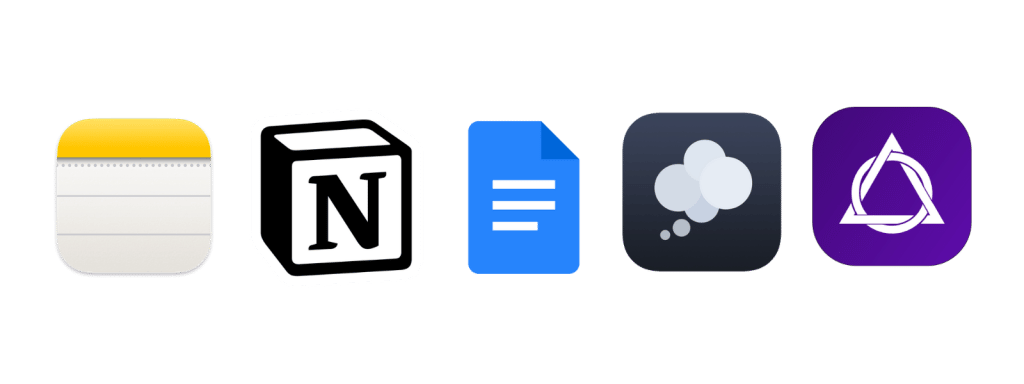
Here are the apps I've found the best for recording your dreams:
| Notion | Dreams | Apple Notes | Google Docs | Awoken | |
| Availability | IOS, Android, Web Browser | IOS | IOS | IOS, Android, Web Browser | Android |
| Cost | – Free | – Free- Premium $12 | – Free | – Free | – Free- In-App Purchases $1.99 |
| Writing | ✅ | ✅ | ✅ | ✅ | ✅ |
| Drawing | ❌ | ✅ | ✅ | ❌ | ❌ |
| Upload Images | ✅ | ✅ | ✅ | ✅ | ❌ |
| Passcode Lock | ❌ | ✅ | ✅ | ❌ | ❌ |
| Tagging | ✅ | ✅ | ✅ | ❌ | ✅ |
| Cloud Backup | ✅ | ✅ | ✅ | ✅ | ✅ |
| Reality Checks | ❌ | ✅ | ❌ | ❌ | ✅ |
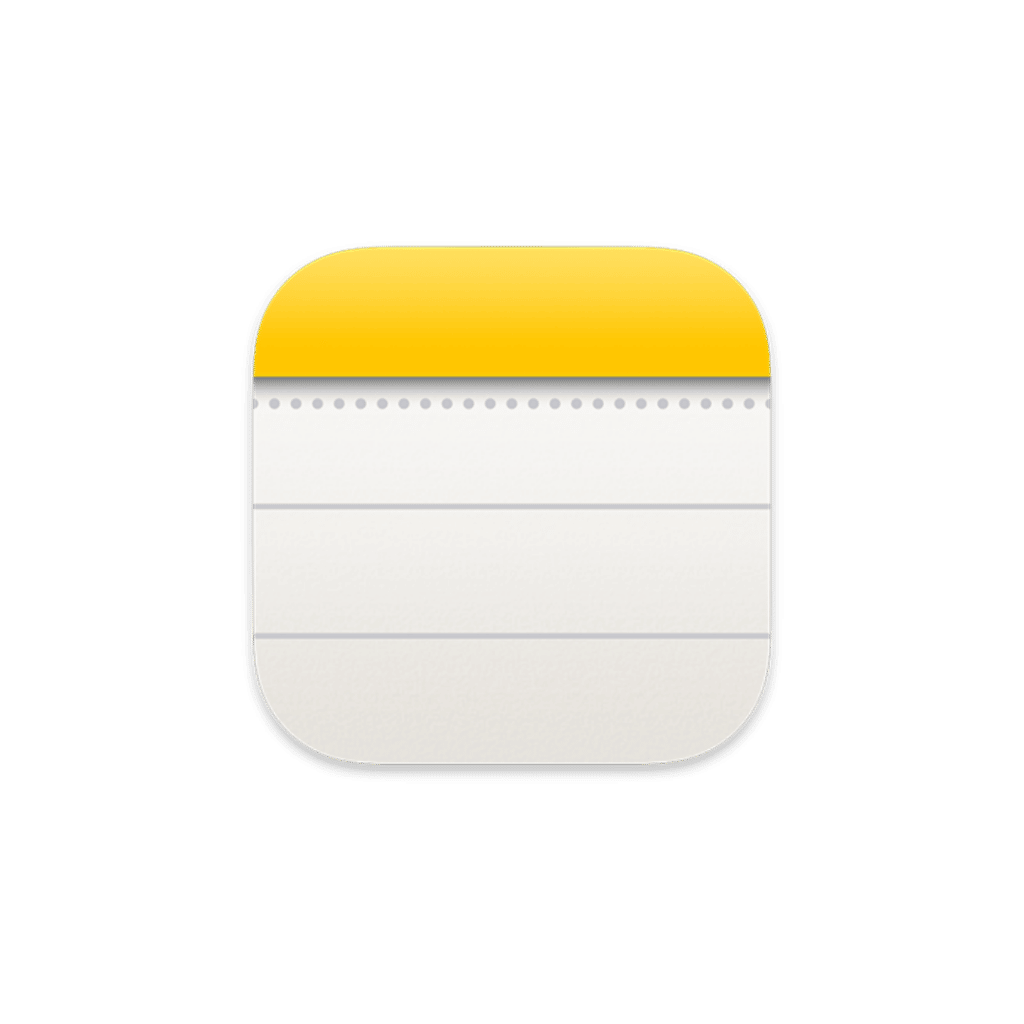
1. Apple Notes
The basic note-taking app from Apple has a surprising array of functionality when it comes to note-taking. You can write, use voice-to-text dictation, and draw, all using the same app.
Apple notes also let you organize your dream journal into a separate folder, add tags, provide share links to send to friends, and even add a lock to dreams you'd rather keep private.
It offers everything a solid dream journaling app should feature — and best of all, it's free.

2. Notion
Notion's strengths are its simplicity and well-designed distraction-free writing environment. It's well suited for organizing large amounts of entries, and you have the freedom to add any features you like — such as cataloging/tagging, date stamps, uploading images, or creating public links to share your dreams with your friends.
The best part is that you don't need to use the app exclusively for dream journaling. You can still use the app for organizing just about anything else in your life. The dream journal is just one small component.
The downfall comes from the lack of drawing ability (you need to embed from other apps to achieve this) and an inability to lock certain notes.
If you want to try notion, try using this Notion dream tracker template to get started.

3. Dreams (IOS)
This IOS app provides prompts to enter your dreams and record other useful information about your sleep. It makes keeping track of your dreams using your phone or tablet as simple as possible.
You can use the basic features for free but will need to pay a one-time payment of $12 in order to gain access to paid features.
The interface is clean and simple without being overly gimmicky or distracting. The only annoying part of this app is that you'll need to record the time spent asleep manually. Maybe one day, this app will develop integrations with other sleep tracking apps so this can happen automatically.
You can catalog your dreams using tags, draw or upload images, and add a passcode to prevent prying eyes from reading your personal information.

4. Google Docs
This simple word processor offers all you need to get your ideas into words, and everything is saved automatically in the cloud. It's simple, free, and doesn't offer any gimmicks or unnecessary features.
Literally any word processor will work for recording your dreams, so don't feel like you need to buy some fancy app just to get started. The best way to start is to use free tools you're already familiar with. Microsoft Word or Pages work perfectly well for this too.
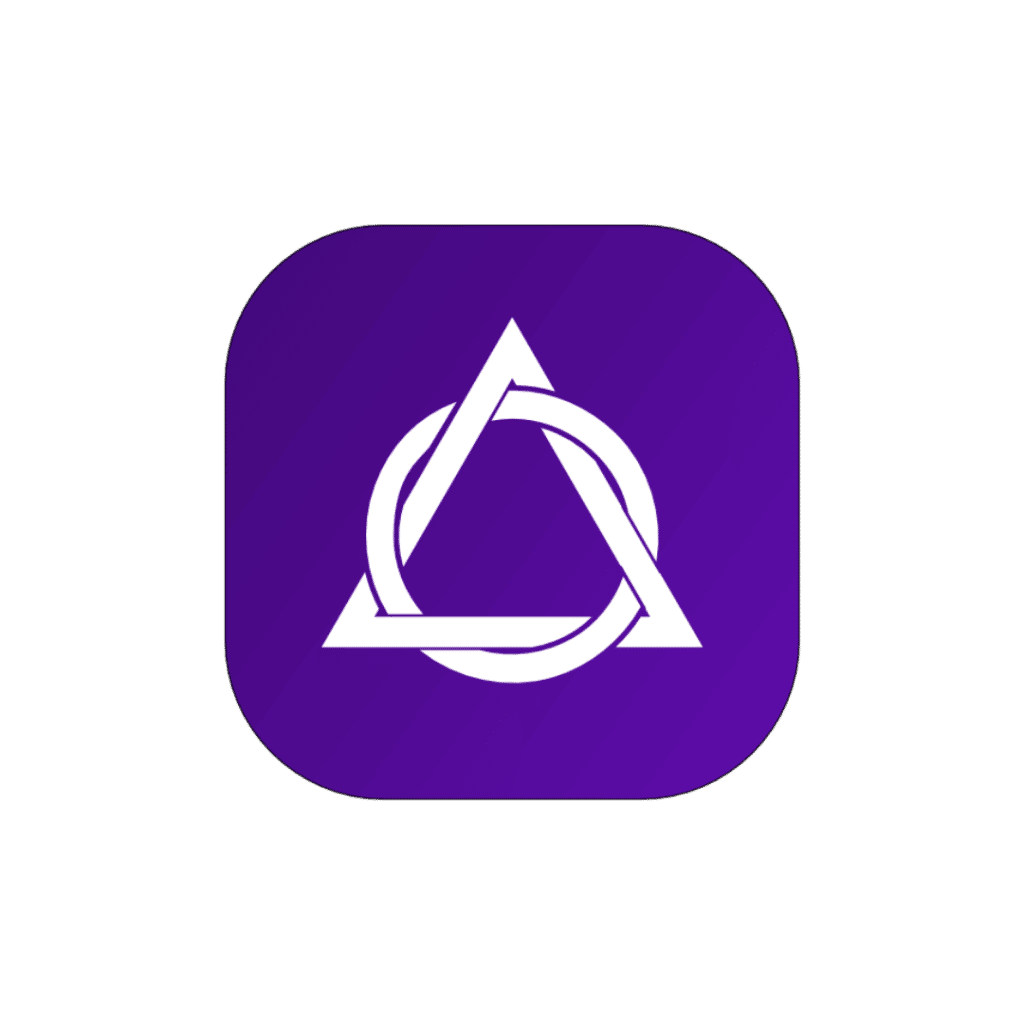
5. Awoken
This is an Android app designed to help users lucid dream by sending them periodic reality checks throughout the day. It also features a dream journaling feature with the ability to tag your dreams and search them by keyword or date so you can find them again later.
I don't have much experience with this app as I don't own an Android phone, but this is one of the more popular apps recommended in lucid dreaming circles.
Can I Draw in a Dream Journal?
Yes! In fact, drawing is encouraged. Any way you can bring the experience of the dream from the unconscious to the conscious is welcomed. You can draw, paint, or make diagrams — whatever your heart desires.
If you're using an app, you can even Google search images that align with what you saw and upload them to your document. Anything goes here.
Why Should I Try To Remember My Dreams?
Improving your dream recall or practicing lucid dreaming takes some effort and a lot of patience. Is it worth the effort? Why should I try and remember my dreams?
Our ability to dream is more powerful than you might expect. Dreams are a potent source of creative energy; they're useful for stabilizing our emotions, they give us unique aspects for understanding ourselves more deeply, and they can even offer us a chance to practice skills that translate into real-life improvements.
Leveraging our dreams in these ways requires us to be able to remember them when we wake up.
1. Tap Into New Creativity
Our dreams are saturated with creative energy. Learning to tap into them and apply them in the real world is a trick many people use to get past creative blocks or develop novel ideas to solve complex problems.
There have even been some experimental studies reporting that participants that practiced dream journaling scored higher on tests designed to measure one's capacity for creative thinking [4].
There are plenty of examples of people who have developed world-changing ideas from their dreams.
Larry Page created Google after dreaming about a way to download the entire internet onto a single computer and catalog them using links.
Dr. James Watson first envisioned the spiral shape of DNA in a dream back in 1953 — a discovery that forever changed the field of genetics and even earned him a Nobel Peace Prize.
Einstein's theory of relativity, Niels Bohr's model of the atom, Dimitry Mendeleev's periodic table of the elements, and Elias Howe's sewing machine were all born in a dream.
Imagine if any of these ideas were forgotten before they could be fleshed out and developed?
Countless other dreams and ideas have been forgotten and lost.
Related: Can Psychedelics Make Us More Creative?
2. Practise Real-Life Skills
We spend roughly 30% of our existence asleep. That's a large portion of our existence that could be tapped into.
Some people use lucid dreaming and enhanced dream recall through journaling to practice real-world skills — such as playing an instrument, dancing, singing, or other hobbies and skills.
A study published in 2010 found that participants who successfully practiced tossing a coin into a coffee cup while lucid dreaming significantly outperformed participants who did not [2].
According to threat simulation theory, this is one of the primary functions of a dream [3]. The idea is that dreaming allows us to practice how we respond to stressful or dangerous scenarios. When we face dangerous situations in our dreams, we're able to practice how we might deal with them. This translates into improved responses and outcomes when facing these threats in real life.
3. Gain A Better Understanding of Who We Are
Our dreams may offer unique insights into our unconscious mind — an aspect of consciousness we can't normally see.
Unwanted, repressed, and uncomfortable thoughts, emotions, and urges can awaken in our dreams. Learning to spot them, acknowledge them, and understand them can dramatically alter how we feel and respond to stresses in our waking life.
In order to explore this concept, we have to break down the differences between conscious and unconscious aspects of our psyche.
Carl Jung, the founder of Jungian Analysis, believed there are three levels of the psyche:
- Consciousness — this refers to our field of awareness. These are the thoughts and emotions we're aware of and our general sense of "self."
- Personal unconscious — this is a layer that sits behind conscious thought, just out of reach. It contains our repressed memories and forgotten information. We're unaware of the influence our personal unconscious has on how we think, act, and feel. Shadow work is a practice of identifying and acknowledging our unconscious, repressed traits that unknowingly lead to toxic or unhealthy habits.
- Collective unconscious — this is the deepest layer of our psyche. It contains memories and experiences we didn't have ourselves but were inherited when we were born (primordial imagery).
Carl Jung and others that came after him suggest that we can use our dreams to identify aspects of our unconscious minds. This is done by paying attention to recurring themes and symbolism and considering what they mean to the individual.
Learning to recognize the influence our personal and collective unconscious have over the way we make decisions helps us gain more conscious control over how we feel and act in the face of stress or danger.
"Your visions will become clear only when you can look into your own heart. Who looks outside, dreams; who looks inside, awakes." — Carl Gustav Jung.
Related: 100 Shadow Work Journalling Prompts.

What is Lucid Dreaming?
Lucid dreams refer to any dreams in which the dreamer is aware they're dreaming.
This happens when parts of the brain associated with reason and higher cognitive control — such as the prefrontal cortex — become active while the rest of the brain and the body remain asleep.
This can only happen while in REM sleep, so there are only about 2 hours of time each night where lucid dreaming is possible.
How Do I Interpret My Dreams?
There are a lot of theories around dream analysis. Carl Jung and Sigmund Freud both considered dream analysis as a valuable tool in understanding the psyche and the origin of consciousness.
With that said, interpreting your dreams isn't as simple as looking it up in a "dream dictionary." Dreams are highly subjective and personal — a certain symbol might mean something entirely different to you than it does to someone else based on your unique personal history.
What's more important is to reflect on recurring themes and symbols and what they mean to you personally. What is your association with them? How do you feel when you experience dreams with these themes or symbols?
Keeping track of your dreams in a journal will help you understand the "meaning" of your dreams over longer periods of time. If you dream about something specific, such as a bear, you can check back on your dream logs that include a bear in them and see if there are patterns you can pick out. What was happening in your personal life around that time? What other overlapping features or symbols are found in these dreams?
If you're interested in interpreting your dreams from a more professional perspective, there are psychologists who specialize in this field.

Why Can't I Remember My Dreams?
Everybody spends roughly 2-hours dreaming each night, whether you remember them or not. Upon waking, memories of the dream immediately begin to dissipate. Within about 10 minutes, the vast majority of the details of the dream are lost.
There are many theories for why we can't remember our dreams. A group of researchers at the University of Milano suggest altered levels of acetylcholine and norepinephrine while we're asleep, compared to when we're awake, are to blame for our forgetfulness [5].
Another study found that people who had higher white matter density in the medial prefrontal cortex had the best dream recall (92 participants) [6].
Regardless of why we forget our dreams so easily, the fact remains that anybody can learn to increase their dream-recall with practice. Even the most trained dreamers won't remember all of their dreams; practices like dream journaling can significantly increase the likelihood of remembering details from dreams the night before.
Final Thoughts: The Benefits of Dream Journalling
Your dreams are more valuable than you might expect. Many of the greatest thinkers to have ever lived derived creativity or innate wisdom from their dreams — and you certainly can too.
Learning to tap into your dreams to discover new ideas, process and regulate emotions, and take a deeper dive into your psyche are just some of the benefits that can come from training your ability to pay attention to your dreams.
Dream journaling boosts our dream recall, gives us material to analyze and interpret later, and increases the chances of lucid dreaming.
This is a practice that gets better with time and may require some effort to perform effectively. Be patient and consistent, and sooner or later, you'll see why so many people are so excited about going to sleep each night.
References
- Peever, J., & Fuller, P. M. (2017). The biology of REM sleep.Current Biology,27(22), R1237-R1248.
- Erlacher, D., & Schredl, M. (2010). Practicing a motor task in a lucid dream enhances subsequent performance: A pilot study. The Sport Psychologist, 24(2), 157-167.
- Valli, K., Revonsuo, A., Pälkäs, O., Ismail, K. H., Ali, K. J., & Punamäki, R. L. (2005). The threat simulation theory of the evolutionary function of dreaming: Evidence from dreams of traumatized children. Consciousness and cognition, 14(1), 188-218.
- Sierra-Siegert, M., Jay, E., Florez, C., & Garcia, A. E. (2016). Minding the dreamer within: An experimental study on the effects of enhanced dream recall on creative thinking. Journal of Creative Behavior.
- Becchetti, A., & Amadeo, A. (2016). Why we forget our dreams: acetylcholine and norepinephrine in wakefulness and REM sleep.
- Vallat, R., Eichenlaub, J. B., Nicolas, A., & Ruby, P. (2018). Dream recall frequency is associated with medial prefrontal cortex white-matter density. Frontiers in psychology, 9, 1856.
Source: https://tripsitter.com/lucid-dreaming/dream-journal/
0 Response to "How Do I Continue a Dream the Next Night"
Post a Comment